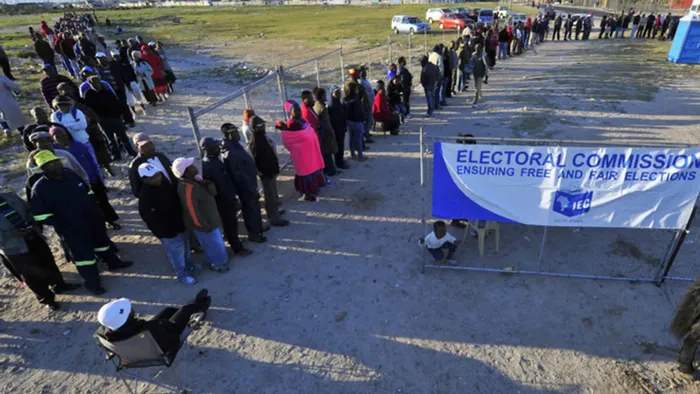Time to think of the 2029 elections: Critical thinkers are a threat to a status quo

Extra: Despite long lines, SA needs more people to vote. Picture: supplied
There’s a very disconcerting thing about our modern democracy – the very real chance that your government doesn’t represent you at all.
An even greater worry is that this is the case for most people around the world.
Now that our elections are over and we prepare for a shuffling (not a changing) of the guard, hear me out.
It’s a bit statistical, but still very interesting, and upsetting at the same time.
There are almost 58 million of us in South Africa, of which a little less than half are registered voters, who had to choose between more political parties than ever before.
What that means is that close to 28 million people split their votes 70 different ways.
Let's imagine for a moment that it was an even split. Each party would therefore get 400 000 votes. While that will never be the case, just think about that for a moment.
In an ideal scenario, if one of those parties won the election with slightly more votes than the others, that party would govern an entire country of nearly 60 million, with a mandate of only 400 000 citizens. It’s crazy right.
In reality, it’s not all that bad, but it’s still extremely unrepresentative.
Last Wednesday, fewer than six million people voted for the ANC, which will force it into a coalition.
Let’s assume that coalition is with the DA, which got fewer than four million votes.
What that means is that all 58 million South Africans will be governed according to the wishes of under 10 million voters.
Put another way – 100% of the country will be ruled with a mandate from only 17% of voters.
And even they didn’t vote thinking their party of choice may have to share the spoils with another, so their own wishes are not being met entirely either.
But like I said, it’s the form of democracy that’s being practised and accepted around the world, because we don’t really have a better system to rely on.
Unpacking those numbers a little further brings up a whole bunch of other questions.
For example, the majority of voters are young females between the ages of 18 and 40, who are disproportionately affected by crime and unemployment.
I would imagine that they would be lining up to ensure a better future for themselves by making their voices heard.
It’s very interesting to me that the people for whom change would mean the most, almost always decide against change.
And I haven’t even touched on the 15 million South Africans who are eligible to vote, but didn’t register and therefore remain voiceless.
In all fairness, our voter apathy is less prevalent than in other countries, but it is still worryingly high and the more things remain the same, the less inclined they will be to participate in future elections.
Perhaps a coalition government is actually the next best thing to a government of national unity – that experiment in compromise that we tried post 1994. In that way, more people are represented.
So what is the answer to all these questions?
I believe ongoing political education is our best bet.
People need to understand the different dispensations and how it impacts their daily lives.
More importantly, they need to understand how the different levels of government works, making it easier to identify empty political promises.
If a newcomer promises you a job, or paveS roads in exchange for your vote, you need to know whether those are municipal, provincial or national competencies, which will help you understand whether the promise is possible or not.
Otherwise you may end up wasting your vote on a small party that is forced to close its doors after the elections, leaving you voiceless.
It’s easy to believe that your one singular vote can’t possibly make a difference. But if you are part of the education process and share your understanding with your neighbours in a persuasive way, then it’s no longer just one singular vote.
I often see social media posts about the things our children should be taught more intensively at school, but aren’t.
Things like taxes, compound interest and real estate, but political understanding and government delivery is almost never mentioned.
And yet it is the one thing that will affect their lives most as adults.
They need to know how opposition politics will increase or diminish their future prospects, what impact splitting their vote will have on service delivery, or how to identify populist politicians who have flexible values according to their audience.
These are critical skills to help them craft the society they want their children to live in.
But maybe such understanding is the very reason why politicians may not want such a subject to form part of the school curriculum.
In fact, it may well be the actual reason behind lowering the matric pass mark, because critical thinking voters would pose a danger to the status quo.
Related Topics: